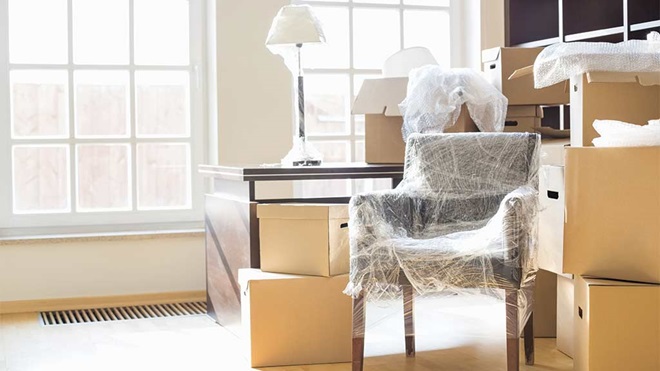NSW Fair Trading is warning consumers to steer clear of an interstate removalist business, Bustamove Removals, that makes runs to Melbourne, Brisbane and Canberra, as well as within the Sydney metropolitan area.
On this page:
- How not to get scammed by a removalist
- How does removalist insurance work?
- How to lodge a removalist complaint
Fair Trading has received over 40 complaints about the company – a laundry list of removalist sins, including losing and breaking items, failing to arrive at the scheduled time, and failing to arrive at all.
The business has allegedly also engaged in a classic removalist flimflam: changing delivery times without notice, storing the items at an additional charge, and then holding the goods hostage and asking for extra money to pay for the storage costs before agreeing to deliver.
Stanley has also failed to provide receipts and contracts when asked.
The collective financial detriment to consumers so far as a result of dealing with Bustamove Removals is believed to be around $69,000.
"Damage to goods during a move is bad enough, but loss of possessions, failure to deliver on time and failure to provide the basic requirements under the Australian Consumer Law compounds consumer distress and dissatisfaction," said Fair Trading Commissioner Rod Stowe.
How not to get scammed by a removalist
Do your research
- Shop around by reading through customer reviews on independent websites
- Ask friends and family to recommend a removalist that they or a friend of theirs have used and were happy with
- Check whether the removalist is accredited by the Australian Furniture Removers Association (AFRA) – if they are, they have to meet certain standards aimed at protecting consumers.
Ask the right questions upfront
- What is the total cost of the move?
- What exactly is included in the cost? Do they charge by the hour or is it a flat rate?
- Are there any additional costs you may need to factor in?
- How long will the move take?
- If there are any delays on the day, is there an extra cost involved for storage?
Get an accurate quote
- Always insist on a written quote after providing detailed information about your move
- Make sure the quote is itemised and the removalist can account for every charge
- If you need more information about certain charges, ask for it and make sure everything's clear before accepting the quote.
Get a contract that clearly spells out the agreement
Make sure it includes:
- the complete details of the service being provided
- the pick-up and delivery address, dates and times of the move
- a household inventory of goods being moved
- details of insurance for any loss or damage.
How does removalist insurance work?
Taking out removalist insurance can be a good idea, especially if it's a big move and everything you own, including expensive and breakable items, is on the line. For smaller moves, it's a case-by-case situation. You probably don't need insurance for a small truckload of solidly built and well-protected goods unless you want to be extra careful – which is not necessarily a bad idea.
Removalists don't have to provide insurance for your worldly possessions during a move, and most only have insurance that covers their vehicle in case of an accident. But if the removalist in accredited by AFRA, they're authorised to provide transit insurance for everything in the truck.
Transit cover insures your goods while they are being packed and moved by removalists or stored in the course of the move, but you will have to pay for it. If your goods need to be stored beyond the course of the move and you want to extend the insurance, you'll have to pay an extra premium.
Home and contents insurance
About half the insurers in our most recent home and contents insurance review offer some form of removalist-related insurance, but many don't cover accidental damage during the move. Some offer cover while in transit but no cover at home until all your goods are in one place – so if half your contents are in your old home and half are in your new one, they won't be insured at either end.
Other insurers have time limits, generally ranging from 14 to 30 days, during which they will cover your contents in both your new and previous residences.
Who's liable?
Some removalists insure themselves against damage to your things. If this is the case, make sure you understand what the removalist covers and doesn't cover, and in which circumstances the insurance applies.
If you pack or unpack yourself and something is damaged, the removalist generally won't accept liability.
How to lodge a removalist complaint
Step one: Try to sort out the problem with the removalist yourself, before lodging a complaint with the fair trading agency in your state.
Step two: If step one doesn't work out to your satisfaction, go ahead and lodge a complaint. In NSW, you can lodge a complaint online or by calling 13 32 20. In other states and territories, complaint lodging advice is available on the websites of the respective agencies.
Stock images: Getty, unless otherwise stated.



